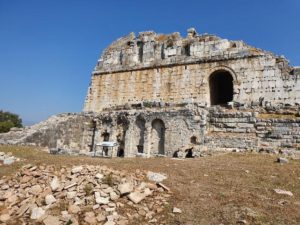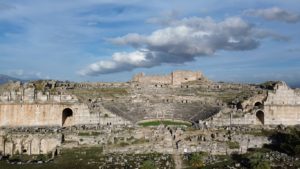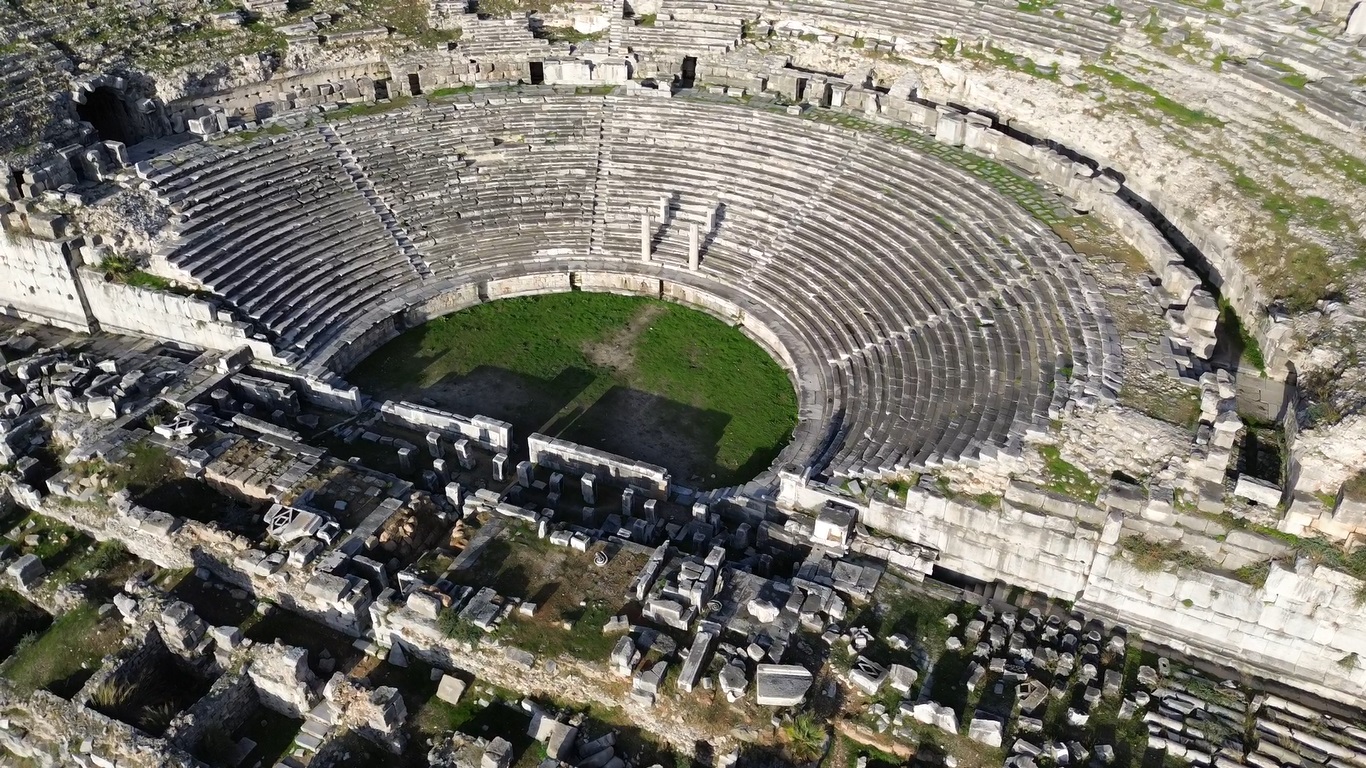By Jay Jean Jackson
Approximately 2500 years ago, there was a significant shift in the way people thought about life, the universe, and everything. Thales of Miletus moved away from mythology as a way of explaining the world and started exploring nature to understand the machinations of existence. However, he did not refute the presence of an array of gods who were believed to control every aspect of life.
I have read many articles on the fathers of philosophy, and there is much speculation about who can claim the accolade. Many authors, but not all, suggest Socrates, Plato and Aristotle of Athens deserve the title. However, the Milesian School, comprising Thales, Anaximander and Anaximenes, was pre-Socratic. Thales was born 150 years before Socrates. So, should the title not belong to these residents of the ancient city of Miletus?
It may be because of the different ways people view philosophy. The general definition classes it as “philosophy is a systematic study of general and fundamental questions concerning topics like existence, reason, knowledge, value, mind, and language.” Thales, and the Milesian school, were the first to look towards the natural world for answers. The approach of Greek philosophers was far more theoretical. Hence the discussions as to who were the fathers of philosophy.

The cave’s position at Miletus
Miletus, in antiquity, was one of the oldest and greatest cities in Ionia in Asia Minor, with over 90 colonies which stretched throughout the Aegean and were as far-reaching as Egypt. It made it a prosperous and cosmopolitan city. It was the birthplace of Thales, one of the Seven Sages of Ancient Greece. These seven wise men (sophoi) were lawgivers, statesmen and philosophers who developed a more ‘advanced method of thinking’.
Thales, as well as Anaximander and Anaximenes, formed the Milesian School of Thought or The Ionian School of Philosophy, as some like to call it. They broke away from the use of mythology as an explanation for everything, instead using logic. The science of natural philosophy was born.
Thales believed ‘all is water’. It is the essence of all things. Water was needed to keep all things alive. It was also the source responsible for change. For instance, the erosion of the shoreline, the arche (beginning) of life, and the Earth. His explanation was based on the discovery of fossils of sea animals found far inland.
He used astronomy to predict the weather, solar eclipses, the summer and winter solstice, and the spring and autumn equinox. Discovering the position of the constellation Ursa Major is attributed to him. He is widely believed to have been the first mathematician. By using geometry, he calculated the height of the pyramids and measured the distance of ships at sea from the shoreline using a triangular method. The five theorems of elementary geometry are credited to him – Thales’s Theorem.
It is rather ironic, considering he believed water was the source of everything, that Thales is reputed to have died at the age of 78 from heat stroke and thirst while watching the 58th Olympiad, the ancient equivalent of the modern-day Olympic Games.
Anaximander was a disciple of Thales. His pupils were Anaximenes, and some say, Pythagoras of Samos. Unlike Thales, some documentary evidence of his work remains, albeit in fragments. He was a scientist whose interest were the origins of the universe.
 He claimed nature was ruled by laws. Anything that disturbed this harmony would not last. He was a geographer who produced a map of the known world. He produced a sundial (gnomon) using his knowledge of geometry. He was also involved in the politics of Miletus and was sent to oversee one of its colonies, of which there were many.
He claimed nature was ruled by laws. Anything that disturbed this harmony would not last. He was a geographer who produced a map of the known world. He produced a sundial (gnomon) using his knowledge of geometry. He was also involved in the politics of Miletus and was sent to oversee one of its colonies, of which there were many.
Anaximenes was the last of the three philosophers of Miletus. His belief was that air was the ‘arche’. Once again, there is no real evidence in the way of texts.
The lack of evidence makes it difficult to confirm the achievements of the Milesian school, but I would still argue that Miletus is the birthplace of philosophy from what is documented and has been handed down through thousands of years.
Although much has been written, Miletus remains in the shadows, with only a few visitors each year, especially compared to Ephesus. It has not received the reconstruction or archeological focus and, personally, I hope it never does.
History isn’t always about reconstruction, it’s about the real history of a place, rugged and beautiful, where things lay after earthquakes and other natural, or man-made, tragedies. However, surely there should be some form of commemoration promoting Miletus as the birthplace of philosophy?
Additional editing: Chris Evans
